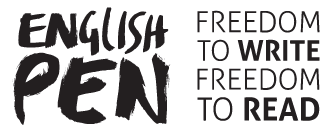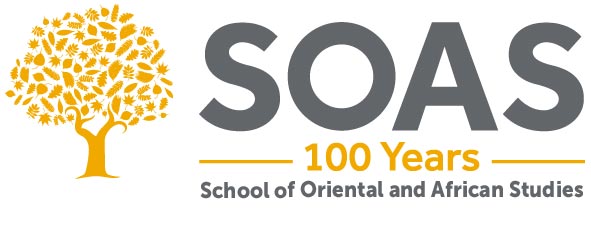
I Am Your Brother
Advocacy, public and policy engagement project in solidarity with Dawit Isaak
A celebration of Dawit’s UNESCO/CANO PRESS FREEDOM AWARD and expert panel discussion on Eritrea by: Arts for Action in partnership with Amnesty International, The Royal African Society, Pen Eritrea, Pen International, Anti-Slavery International, Rerporters without Borders with support from Cultures of Resistance
This event forms part of a larger project in protest against the unlawful detention of political prisoners and prisoners of conscience in Eritrea which aims to engage the Diaspora, the media, students, development activists and the public with the following:
– Performance and workshop tour of I AM YOUR BROTHER by Karl Hoff
– Curated exhibition of Eritrean writing and artwork including original ‘incriminating’ newspaper articles: original, translated.
– Live streaming of production reaching international audience, including Eritrean Diaspora through International Pen Centres
– Post-show discussions and workshops
– Events with specific audience/interest groups. Eg. Students, journalists, development activists, human rights defenders, at partner Academic Institutes
– Workshops with students, actors and writers
– Campaign action – for example: LOBBYING MPS, MEPS, Public petition to Eritrean government, Social Media Action
Background
In 1991, Eritrea’s thirty year long war for liberation against Ethiopia ended. The EPLF (the Eritrean People’s Liberation Front) won freedom for their country against the Marxist- Leninist military junta led by Mengistu Haile Mariam. The world was watching, and many hoped and believed that Eritrea would emerge as a democratic nation. Eritrea is now under the repressive control of a sole political party, the People’s Front for Democracy and Justice (PFDJ). Occasional hostilities are used as a pretext to justify excessive militarisation and non-implementation of the democratic and human rights provisions enshrined in its constitution.
In September 2001, Dawit Isaak was detained without trial, along with a large group of prominent ‘dissidents.’
‘Including Isaak, PEN has at least 21 Eritrean writers and journalists on its Case List, all held in circumstances amounting to enforced disappearance, some of whom are believed to have died in the appalling conditions of Eritrean prisons,’ Marian Botsford Fraser, chair, PEN International’s Writers in Prison Committee.
Dawit Isaak was an active and far-sighted presence on the arts and media scene in Eritrea. He wrote poems, short stories, newspaper articles and plays. He worked closely with Fessehaye Yohannes, who was also imprisoned in 2001, and who died in jail in 2007. Together they created the Children’s theatre group SEWIT and the acrobat group CIRCUS ERITREA.
If he is still alive, Dawit has now spent 16 years in an Eritrean jail because of his peaceful campaign for democracy, conducted through the pages of the newspaper Setit. No one knows for certain where Dawit, his fellow journalists or the 15 ‘dissidents’ are, or what their situation is today. In 2010 Dawit Isaak´s brother Esayas, who lives in Gothenburg in Sweden, travelled to Addis Ababa with a team from Swedish TV8, where they interviewed an Eritrean who had worked as a prison guard at the Eiraeiro jail, some hundred kilometres north of Asmara. He had managed to flee from the prison and crossed the border into Ethiopia. The guard, Eyob Bahta Habtemaream, revealed that Dawit Isaak is Prisoner No. 36 in the Eiraeiro jail.
Conditions for those being held in this prison can be summed up in a single world: torture. This year Dawit has been awarded the UNESCO/Guillermo Cano Prize. The ceremony will be on 3 May (World Press Freedom Day) in Jakarta. This represents a good opportunity to build renewed momentum for campaigning for Dawit’s release, and for the release of his colleagues, as well as raise awareness and strengthen public debate about UK and EU policy.
The Event in Detail
An event in celebration of Dawit’s UNESCO/CANO PRESS FREEDOM AWARD On behalf of the Eritrean Arts for Action committee, established in early 2017 through a roundtable coordinated by English Pen and Pen Eritrea, this event was quickly organised in order to use the UNESCO PRESS FREEDOM PRIZE to build momentum for the Free Dawit Campaign, and discuss UK and EU policy in respect of Eritrea.
The evening aimed to:
– Honour Dawit Isaak’s UNESCO/Guillermo Cano International Press Freedom award
– Highlight Dawit and the other cases of journalists and activists incarcerated without trial or charge in Eritrea.
– Perform a few excerpts from the play I am your brother by Karl Hoff, and other artistic works written in solidarity and protest.
– Celebrate Dawit’s writing through performance and readings by Eritrean Diaspora.
– Read some of the articles held against Dawit and other journalists
– Present expert opinion on Eritrea
– Discuss the recent UN Commission Report and both UK and EU policy in respect of Eritrea. Understanding the challenges for the UK government. Speakers were to include: Patrick Grady MP, Chair of the All Party Parliamentary APPG on Eritrea but the Snap Election somewhat complicated that.
The Evening
Hosted by Vanessa Berhe, Student, activist and president of human rights organisation One Day Seyoum, and Niece of imprisoned writer Seyoum Tsehaye
| Welcome | Mussie Woldesellasie |
| Article written by Dawit in Setit
Letter written to her uncle |
Ismail Imoussai
Vanessa Berhe |
| Selections from the G-15 letter | Paulos Micahel |
| Poem written in Solidarity |
Peter Philpott |
| Excerpts from the play I am your Brother | Performed by Arts for Actio |
| Eritrean song sung by all | Led by Hani Mihretea |
| Song for Dawit | Composed/performed by Hani Mihretea |
| Panel Presentations x 3 | Dawit Mesfin Michela Wrong Amal Ali Martin Plaut |
| Closing remarks – and call to action by Amnesty International UK | Mussie Woldesellasie |
| Group Solidarity Photo | All – with images of Dawit, other prisoners of conscience – placards, key words etc. |
| Eritrean food and music in the SOAS Student Union | Markato Restaurant Philemon and Senait Ghebre Meskel |
Casting The Performance Elements
After researching various performance poets, a poetry reading by a poet who had written in solidarity for Dawit Isaak at an English Pen event, was invited.
Audition notices were put out across various UK and London platforms: Equity, Arts council, Casting Call Pro, and numerous black theatre networks, seeking male actors of North-East African heritage… However, not one male applied! Much effort was spent engaging African Diaspora, migrant and refugee groups, and after 1 day of auditions a cast of women was formed, with a new concept for how the play would be dramatised: with a chorus of women stepping in and out of the roles. This was a welcome accident as this enabled a theatrical device to poetically embody the absence of imprisoned men, fathers, sons, brothers, in general, and Dawit in particular. Over the next week 3 of these female performers pulled out due to family pressure and the political nature of the event and fears of repercussions for relatives in Asmara. The theatrical concept was changed once again with two Eritrean activists volunteering to perform. During the last weekend, a female Eritrean singer came forward saying she was happy to perform, if completely disguised – covered.
The result of casting issues for ‘I am your Brother’ was a chilling female chorus that gently guided an aging ex-liberation fighter now in exile through the text, and action of his role as Dawit Isaak.
Excerpts from the play performed on the night can be seen:
The full event can be seen:
Overall Outputs delivered were:
– 10 half day workshop rehearsals engaging performers with Eritrean writing and the play, I am your Brother to be performed later this year
– Translation of key articles from the pro-democracy paper Setit – to be read and used by the Campaign.
– Presentation to British Media about Eritrea’s situation – highlighting Dawit Isaak’s situation.
– Campaign materials were developed by PEN International
– An email tool was developed by Amnesty, but because of the election they were unable to launch.
– Audio-Visual edit of Press Freedom Award ceremony was shown, with one message from a colleague of Dawit Isaak.
– It was not possible to include performance of other Eritrean writings – but sections from the incriminating G-15 letter were read out.
– A podcast was not recorded unfortunately, despite many attempts to get the BBC to be present.
– Nearly 200 people attended the event.
The event positively impacted the discourse of Diaspora action on Eritrea by providing a space where oppositional views could be articulated with confidence, in the presence of PFDJ-youth representatives who attended with the aim of disrupting proceedings, and failed.
The Wider Project
This event forms the first part of a larger project and provides solid foundations for that to move forward – in terms of: gathering research materials, beginning the process of curating material for the exhibition, testing methodology for gathering testimony from Diaspora and engaging Diaspora in debate, building partnerships with Diaspora and interest groups, developing campaign material, testing discussion points, developing advocacy tools to engage the public and policy makers.
The wider project intends to tour the UK with a performance, exhibition and engagement process.
Main aims:
To campaign for Dawit Isaak’s release and all those that were arrested with him.
To raise awareness about Eritrea amongst a wide and diverse audience.
For the production to portray the Eritrean context in which Dawit has been arrested and incarcerated – to provide audiences with insight into the truth about Afewerki’s dictatorship as revealed in the recent UN commission report, which describes the regime itself as a
‘crime against humanity.’
To provide audiences with insights into unlawful imprisonment and conditions under dictatorships. This particular play adds to the existing body of work in this area – celebrating strength of spirit and the role of the artist to endure, and instigate change.
To provide audiences with a unique combination of visceral, emotional story telling and a politically conscious-raising experience.
To raise questions about UK policy towards Eritrea, and prisoners held without trial or charge in general.
To provide cross-stakeholder platform for engagement and debate- including UK policy makers in respect of Eritrea.


